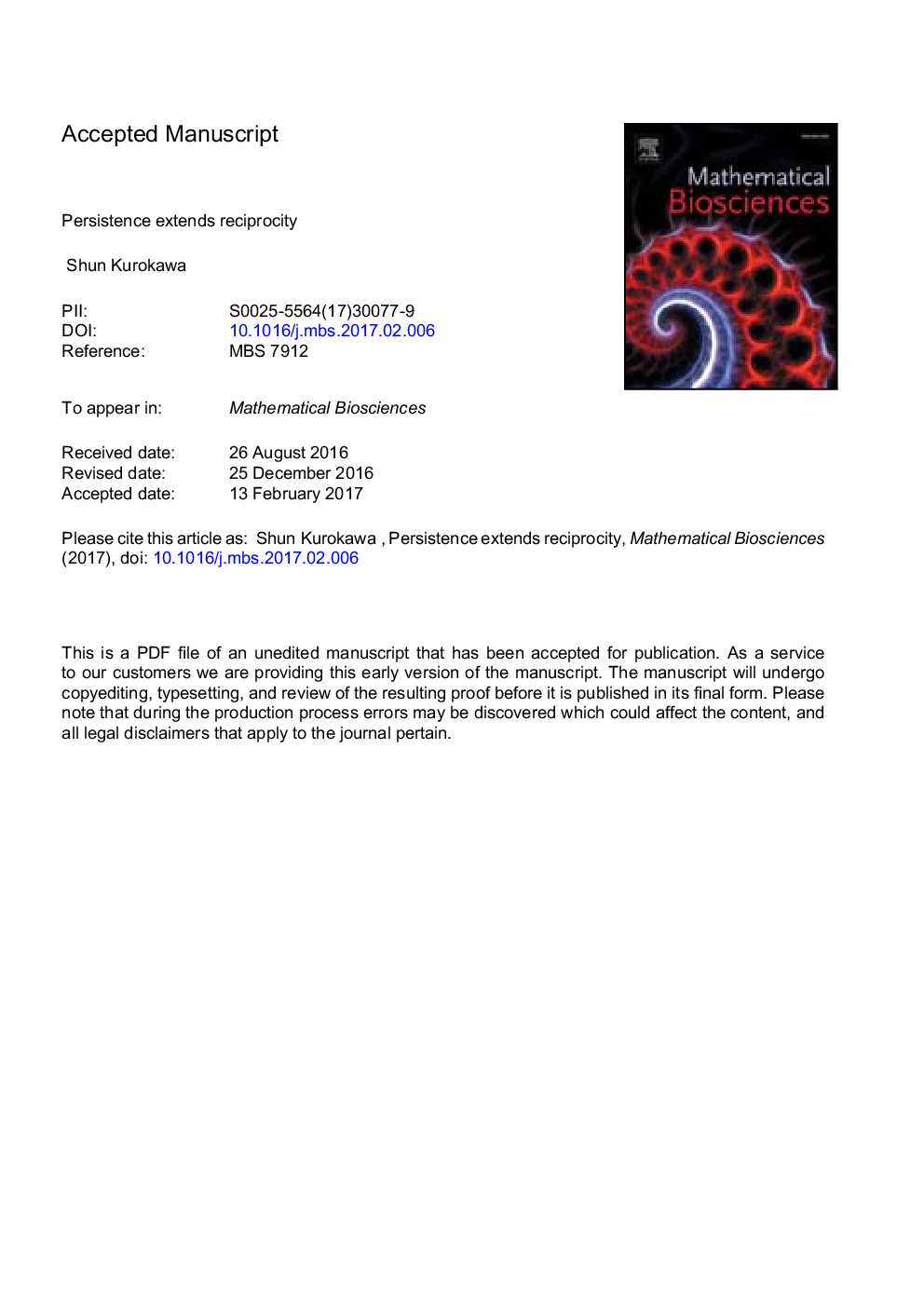| Article ID | Journal | Published Year | Pages | File Type |
|---|---|---|---|---|
| 5760393 | Mathematical Biosciences | 2017 | 33 Pages |
Abstract
One key potential explanation for the evolution of cooperation is conditional cooperation. This allows cooperation to evolve for cooperators who switch their behavior on the basis of information about the opponent's behavior or reputation. However, information about the opponent's behavior or reputation is sometimes unavailable, and previous studies have assumed that a player cooperates with some default probability when no information about the opponent's previous behavior or reputation is available. This default probability has been interpreted as the player's “optimism”. Here, we make use of the fact that even if a player cannot observe the opponent's previous behavior or reputation, he may still condition his future behavior based on his own past behavior and in such a case, he can behave persistently. In this paper, we especially consider the case where information about the opponent's “behavior” is sometimes absent and the iterated prisoner's dilemma game between the same two individuals is played. Here, we examine the evolution of strategies that can refer to the own behavior in the previous round. Using evolutionarily stable strategy (ESS) analysis and analyzing replicator dynamics, we find that conditioning his future behavior based on his own past behavior is beneficial for the evolution. Persistence facilitates the evolution of cooperation.
Keywords
Related Topics
Life Sciences
Agricultural and Biological Sciences
Agricultural and Biological Sciences (General)
Authors
Shun Kurokawa,
